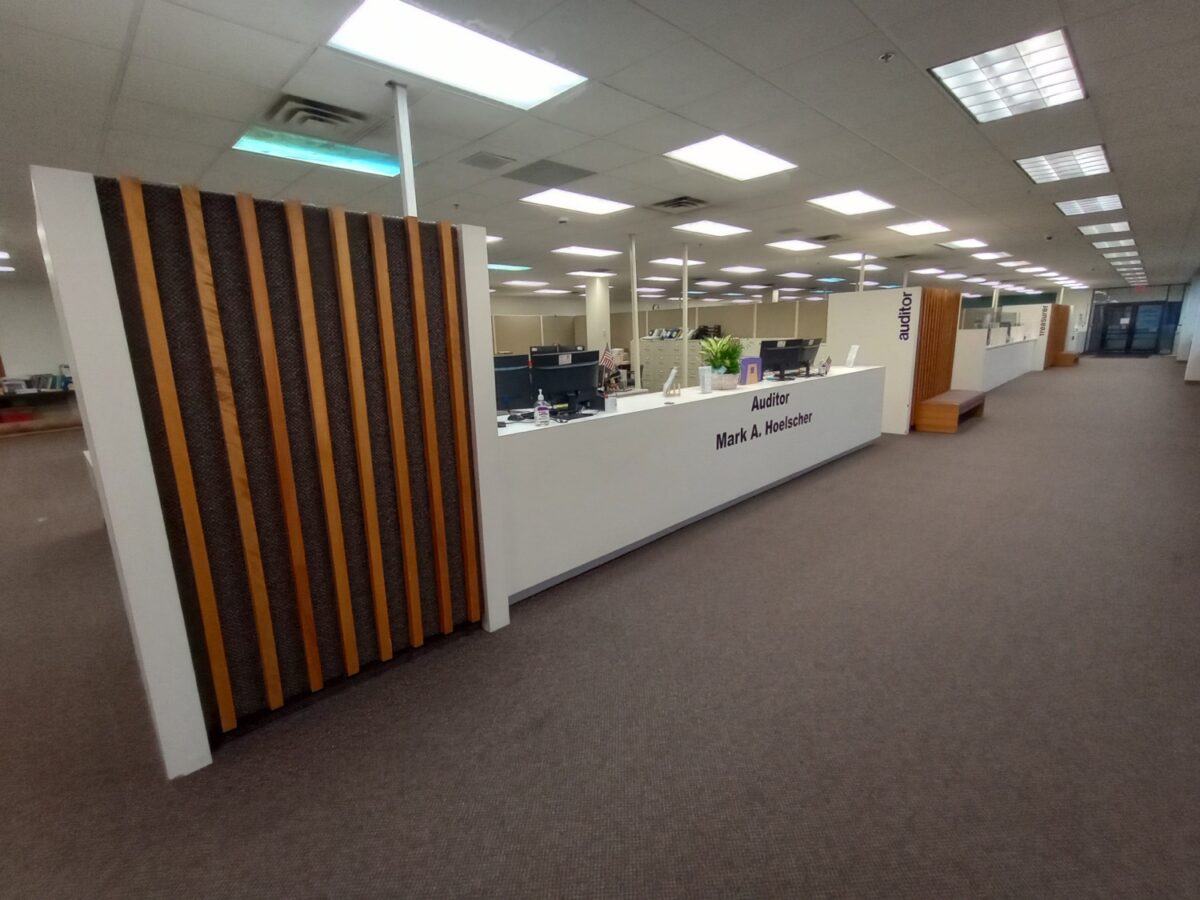Do staff in the Wayne County Administration Building need more security protection from the the residents and taxpayers they serve?
That was the question debated by the county’s commissioners and council members during the May 3 council meeting.
Amid concerns about a nationwide increase in gun violence and threats against government officials, local lawmakers have been adding security measures at county facilities. Protective film on glass doors and an entrance identification system have been implemented at the Wayne County Administration Building following a Wayne County Sheriff’s Office security assessment. Superior Court 3 is receiving shatter-resistant film for the courtroom and office glass as well as enhancements to the courtroom and office locking systems.
Now, officials are considering a change that would have a much bigger impact on the county’s annex building, and the experience visitors would have there: a wall enclosing offices on the second floor’s west wing.
That wing houses offices, such as the auditor and treasurer, that collect payments and sometimes deal with frustrated and disgruntled residents.
At the meeting, commissioner Jeff Plasterer presented council a drawing that would change the wing from an open concept with waist-high counters and no doors, to a walled area with doors and protected counter work stations. The cost estimate is $35,000 for doors with keys and $40,000 for doors with electronic locks.
So far no data has been shared that would indicate an increase in security incidents or concerns at county government buildings.
“This would be a preventative step for the protection of our staff,” Plasterer said.
The reaction, however, is mixed among commissioners, council members and the impacted officeholders. Council member Tony Gillam, who said he opposes the idea, asked if offices would be reconfigured to create extra office space in the west wing.
“If we did it and there are walls that we’re constructing, then that seems like the opportune time to downsize those offices so that if we did need space, we would have it,” Gillam said.
Council member Cathy Williams, a former county treasurer, said employee safety should be the primary concern.
“It’s just whether this is the correct vehicle,” she said.
Council member Max Smith doesn’t think so.
“I understand your presentation and why; I just don’t agree that we need to change the culture and design of our building at this point,” he said. “I’m not against security issues; I just don’t think this is necessary.”
During their afternoon meeting, commissioners continued discussing the topic. Commissioner Brad Dwenger and Plasterer supported a security meeting in executive session for stakeholders to further discuss security ideas.
Commissioner Mary Anne Butters did not support the wall and suggested commissioners should create a unified opinion before any kind of expanded security meeting. She suggested protective gates instead of doors, but Plasterer said gates and the current counters would not stop someone from accessing the office spaces.
“All I’m suggesting is that we look at some security measures that are not involving so much wall and so much extraordinary measures,” Butters said. “It truly changes the architectural structure and feel of the building as it was initially conceived.”
Dwenger said “current times” require different security measures, and that he would hate for an incident to occur without the county having taken additional steps to protect employees.
Other actions
Council members voted 7-0 to appropriate $100,000 in American Rescue Plan Act dollars to pay a certified grant administrator the state requires for Community Development Block Grants.
The county plans to contract with Kleinpeter Consulting Group for projects utilizing $1 million provided by the Indiana Office of Community and Rural Affairs for Hoosier Enduring Legacy Program participants. The county will pay 8% of the grant total plus additional costs associated with any construction projects selected for grant money
Among the county’s HELP participants, Cambridge City, Dublin, East Germantown and Milton qualify for block grants through the program’s low- to moderate-income requirements.
Council also unanimously approved Auditor Mark Hoelscher converting a budgeted part-time position into a full-time position. Hoelscher said the position, with a wage of $16.99 an hour, was previously full-time, but it was changed to part-time to accommodate an employee.
A version of this article appeared in the May 10 2023 print edition of the Western Wayne News.

